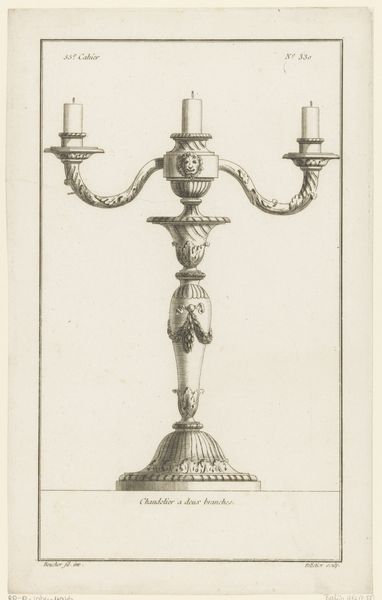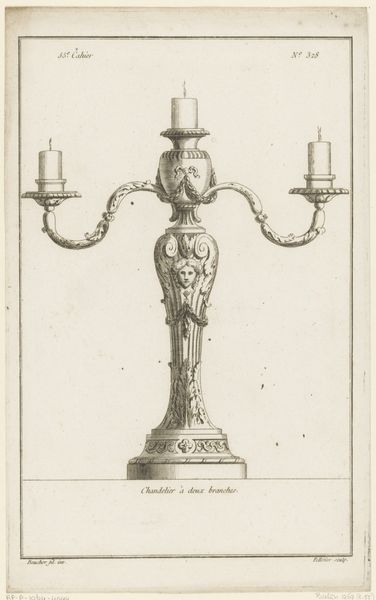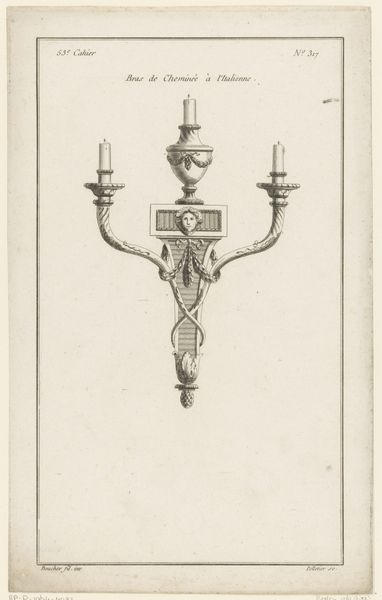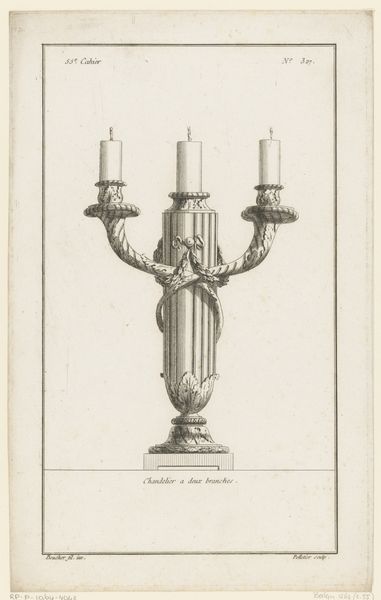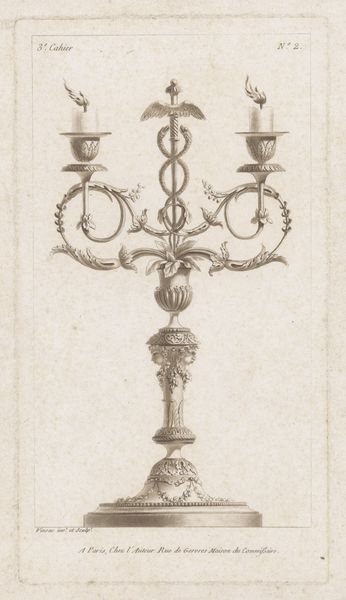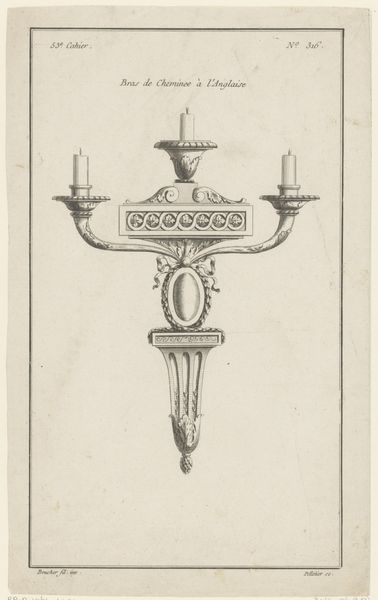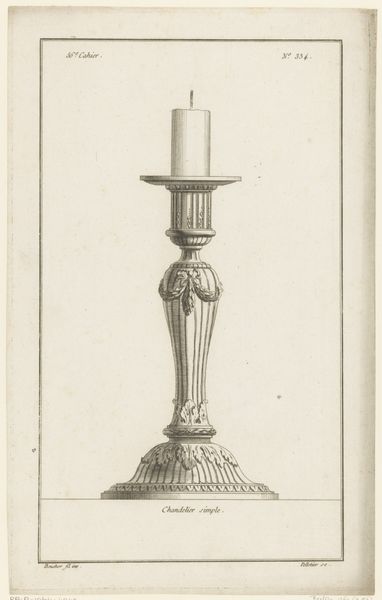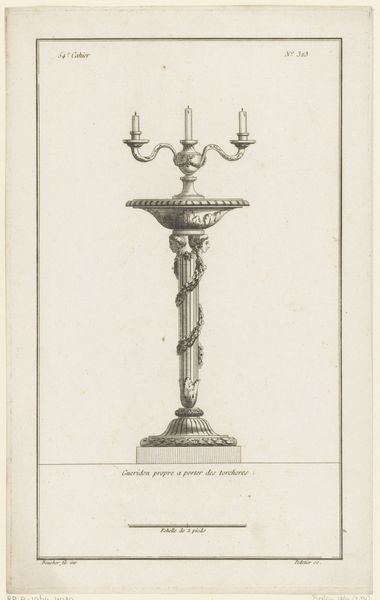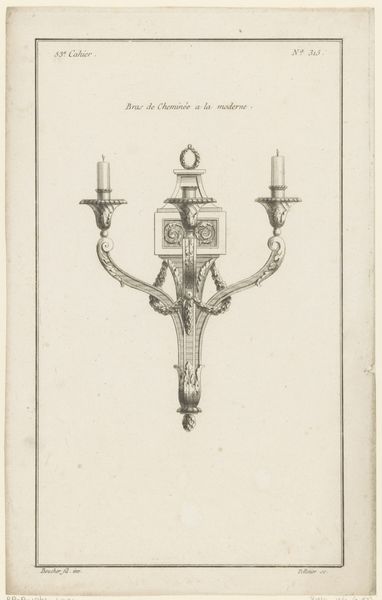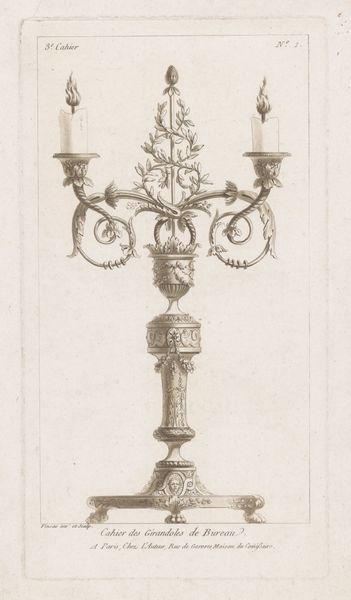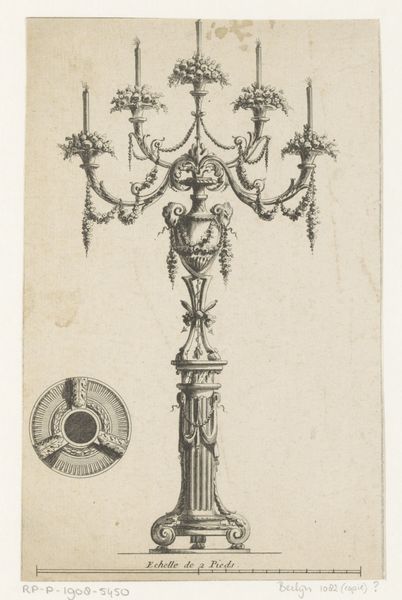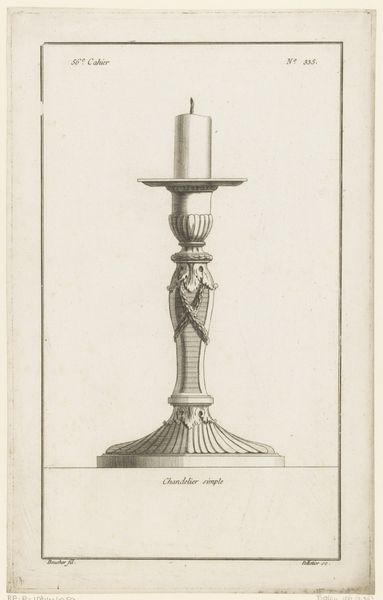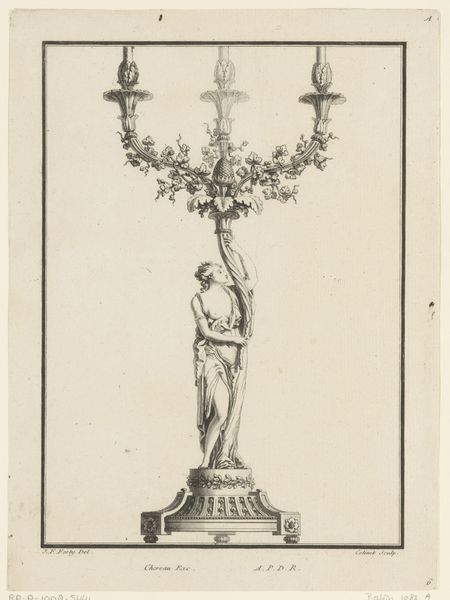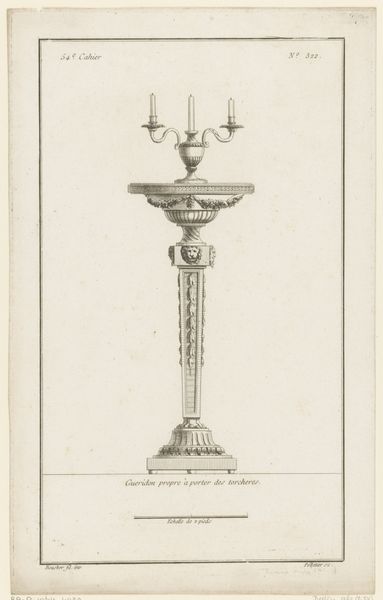
drawing, print, engraving
#
drawing
# print
#
old engraving style
#
geometric
#
line
#
decorative-art
#
engraving
Dimensions: height 328 mm, width 203 mm
Copyright: Rijks Museum: Open Domain
Editor: This is Jean Pelletier's "Candelabrum with Masks," a drawing and engraving from the 1770s. The symmetry and crisp lines create a formal, almost austere feeling, but the little masks peeking out break that seriousness. What strikes you most about this piece? Curator: The masks indeed draw the eye. Notice how they're positioned at the mid-point of the central column. Masks throughout history represent shifting identities, hidden aspects, but also a potent connection to ancestors and primal forces. Placed on a candelabrum, a light source, they suggest enlightenment filtered through ancestral wisdom, don't you think? Editor: That's a fascinating idea, the masks as filters for knowledge. I was seeing them more as decorative elements, maybe even slightly whimsical. But thinking about them as symbols, I wonder if they served to legitimize or perhaps even subtly critique the opulence of the aristocracy during that period. Curator: A critique is possible! During this pre-revolutionary era, artists subtly questioned the established order through symbolism. The candelabrum itself, while functional, is elevated to an object of art, even ritual. Consider the play of light and shadow the flames would cast, animating the masks. Are they benevolent guides, or silent witnesses to secrets? Editor: It is definitely more than meets the eye, literally. The interplay between utility, decoration, and possible deeper meanings...it's like peeling back layers of history. Curator: Precisely. The endurance of symbols lies in their ability to resonate across time, adapting to changing contexts while retaining a core of cultural memory. Now, look closer. What else do you see reflected?
Comments
No comments
Be the first to comment and join the conversation on the ultimate creative platform.
